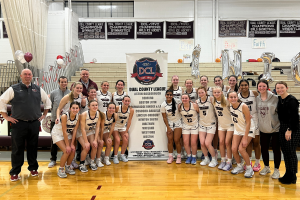Super Tuesday looms on the horizon
March 1, 2016
On Tuesday, March 1st, 13 states will have caucuses or primaries to determine the party presidential election. This day is known across the nation as Super Tuesday. Behind Election Day, Super Tuesday is the most important date of the election cycle.
For the Democratic Party, Bernard “Bernie” Sanders and Hillary Clinton are competing for the nomination. Clinton won in the Iowa caucuses, taking 23 delegates to Sanders’ 21. In New Hampshire, Sanders had a big win, with 16 delegates over 9 for Clinton. In the Nevada caususes, Clinton won with 20 delegates, while Sanders took 15. In South Carolina, Clinton swept.
Winning the March 1 primaries could make or break a candidate’s nomination. In 2008, the greatest number of states voted on Super Tuesday in history with 22 states and American Samoa. This caused some to refer to the 2008 date as Super Duper Tuesday.
Barack Obama won 13 states and territories of the 23, with Hillary Clinton taking 10. This gave Obama a small lead of 13 delegates, which snowballed into his victories in the primary and general elections. In the popular vote, Clinton had an advantage of 1%, with her 46% to Obama’s 45%.
For the GOP, the Super Tuesday in 2008 was very influential. John McCain won 9 states and territories, with Mitt Romney winning 7, Mike Huckabee winning 5, and Ron Paul winning none. McCain took an astounding 602 delegates on that day, over 400 more than Mitt Romney, the candidate behind him, with 201 delegates. Huckabee 152 delegates, and Paul took home a measly 10. This huge disparity put John McCain in position to be the definite Republican nominee.
10 states voted on 2012 Super Tuesday, but all primaries were Republican. The incumbent president, Barack Obama, was uncontested for the Democratic nomination.
Mitt Romney won 6 states with 225 delegates, putting him in place to become the Republican nominee. Rick Santorum won 3 states with 89 delegates, Newt Gingrich won a single state with 80 delegates, and Ron Paul won no states but still managed to garner 21 delegates.
In 2016, Alabama, Arkansas, Georgia, Massachusetts, Oklahoma, Tennessee, Texas, Vermont, and Virginia have primaries for both parties. Colorado and Minnesota have caucuses for both parties, while Alaska and Wyoming have Republican caucuses.






